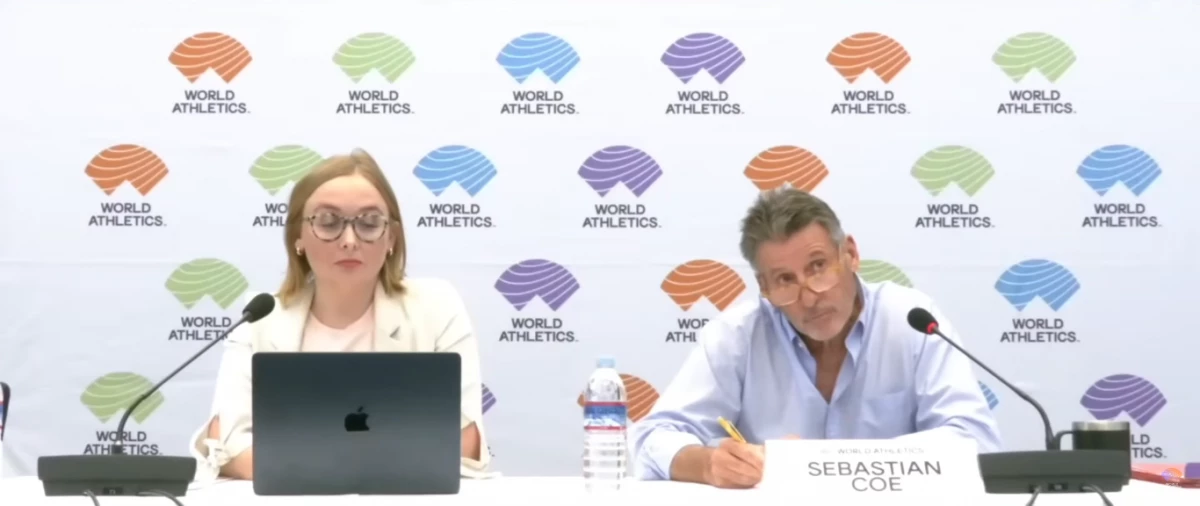World Athletics unveils bold innovation and growth agenda ahead of Tokyo Championships

World Athletics President Sebastian Coe speaking during the 238th World Athletics Council press conference on Tuesday, September 9, 2025. Photo/World Athletics

Audio By Vocalize
The World Athletics Council has unveiled a
sweeping “Innovation and Growth” agenda as it prepares for the World Athletics
Championships Tokyo 25, scheduled for September 13–21, 2025.
The announcement came during the Council’s
238th press conference in Tokyo, where athletics leaders outlined a range of
reforms aimed at modernizing the sport and expanding its global reach.
World Athletics President Sebastian Coe set
the tone for the new direction, stressing that the next two years would be
critical in shaping the sport’s future.
“In two years’ time, we will meet again in Beijing, and many of us in this room,
including myself, will end our term. That gives us two years to supercharge our
sport so we can hand it over in better shape than we inherited it,” he told
delegates.
Among the initiatives presented were
strategies to harness technology for enhanced performance tracking and to
experiment with fresh competition formats that could make athletics more
appealing to wider audiences.
Coe also highlighted the importance of
exposing athletes to new markets, ensuring that the sport resonates beyond
traditional strongholds and taps into new regions with emerging talent and fan
bases.
A significant part of the agenda focused on
reforming the world rankings system. In contrast to the current format that
awards points based on a combination of results and competition level, the
Council has approved a more balanced approach that ensures athletes across
different regions and competitions have a fairer opportunity to climb the
rankings.
This, Coe emphasized, would be essential in
leveling the playing field and fostering inclusivity within athletics.
Event innovation was also at the heart of
the press conference. The Council approved enhancements such as a fixed running
order of man-woman-man-woman for the 4x100m mixed relay, the introduction of a
steeplechase mile, and the implementation of a takeoff zone for horizontal
jumps.
New formats for indoor competitions are
also in the pipeline, with a revamped 400m and an 800m breakpoint race set to
debut at the 2026 World Athletics Indoor Championships.
With Tokyo 25 expected to become one of the
most sustainable sporting events ever hosted, these changes are not only about
reshaping the future of athletics globally but also about unlocking new
opportunities for athletes from countries like Kenya.
Better sponsorship deals, stronger funding
structures, and exposure to innovative competition formats could significantly
boost Kenyan athletes’ visibility and competitiveness on the world stage.
As the athletics world counts down to
Tokyo, the Council’s agenda promises to redefine how the sport is experienced,
both by athletes and fans.
It is a roadmap that blends tradition with forward-looking reforms, offering a path of innovation and growth that could leave a lasting legacy for generations to come.


Leave a Comment